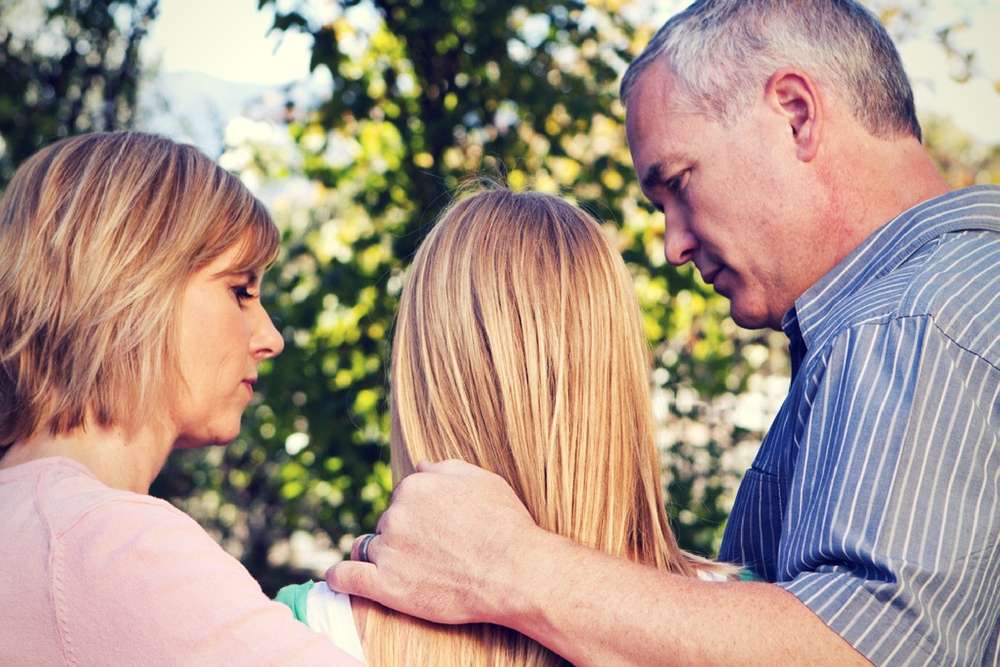How to Come Clean With Your Family
Suffering through an addiction can be one of the most painful times of anyone's life. Addiction affects your emotions, how you enjoy things, your focus, your performance, and therefore every other aspect of your life, so that it can negatively affect your job, your relationships, your friends, and your family. Coming clean to your family is crucial to building a support network of people who love you and who can help you to prevent a relapse in the days and months to come. Unfortunately, this seemingly simple task can be one of the most difficult aspects of getting clean for a variety of reasons.
Understanding the Psychological Difficulty of Coming Clean
Coming clean isn't easy, but you should understand why it's not. There are a variety of psychological points that come into play when you go to tell someone you are addicted. These include habit, stigma, shame, and ego.
Habit
Most addicts center their lives around hiding their addiction. Whether that is through pretending to be okay, trying to live your life normally, or outright lying, almost all addicts are guilty of hiding their addiction. That's understandable considering that many people associate shame, poor behavior, and stigma with illicit drug use or alcohol addiction or dependence. Hiding your addiction often becomes second nature, starting from the initial psychological reaction of hiding it from yourself. This manifests in different ways depending on gender, household, and personal responsibilities, but your habit is likely to hide your addiction and lie, and this can be difficult to break out of. It can also be difficult to admit that you lied.
Stigma
Most people associate a great deal of stigma and shame with being an addict. The reality of addiction is ugly and many people make terrible choices while under the influence of a substance. However, there is no shame in being addicted. Instead, you have to take responsibility for your addiction, move forward, and talk to your family about what you are doing to change. If you must, remind them that guilt trips and negative comments create a cycle that will actually put you in a mental state where you are more likely to use drugs again. Shame and guilt cause depression, and negative emotions, which causes your brain to crave a dopamine high. Because you're trying to avoid that, you should ask them to be supportive, kind, and positive about your addiction and recovery.
Ego
Men and women suffer from opposite issues regarding ego from drug addiction. Women typically ignore their ego, putting their sense of self last in favor of maintaining their outer relationships and using their substance. Men typically use the substance to boost their ego to create an exaggerated sense of self. This can create different obstacles depending on your gender, and those obstacles should be approached with care. Women, who can typically be too frightened to tell a group of people about their addiction, should consider coming clean to one person that they trust, and then asking that person for help in telling the rest of the family. However, if you are female and have already been to a clinic, where you have worked on your self esteem, you can consider telling everyone yourself. For men, the concept of admitting to an addiction can be less daunting, but if you are a man, your reactions to the criticism you receive from the admission can be more severe. You should prepare yourself, and consider talking to your family upfront about being gentle.
Coming Clean to Your Family
Coming clean to your family should involve considering your options, making a plan, and working out a gentle way to tell everyone about your addiction. You may find it helpful to prepare handouts with information or letters to ask people to read, as this will force them to look at facts without reacting immediately with emotion. You can start small with one or two people, or gather everyone in the same room and get it over with all at once. Your option should depend on your gender, your emotional state, and your family.
Apologize
Offer a heartfelt apology. Most of the time as addicts we unknowingly harm others by putting our substance dependence first, which does affect family. Consider your actions and remember that even if you haven't actually harmed your family, the admission of an addiction may be a painful blow to them emotionally. Consider an apology and make it heartfelt.
Make a Plan
Decide how you want to tell your family, who you want to tell it to, and how many people you want to tell it to at first. Usually, coming clean to a trusted person who will take your side can be easier than coming clean to everyone at once.
Know Your Options
Have your plan to get clean or stay clean ready so that you can outline it to your family and gain their support. Remember that if you need help, you have to ask for it and your family will usually be willing to help.
Your family may already know or suspect that you are addicted, but you can use your own judgment when deciding what to say and how to approach your discussion. Many people find it helpful to start with phrases like "I'm sure you've all noticed I've been having problems", "You may have noticed that I've changed and I'm sorry," "I want to apologize to everyone about my behavior and actions," or "I have something to tell you all and I would like to ask for your support and your promise to be positive in advance."
You can say anything you want but you should start out by asking people to be quiet, asking them to think before they react, and asking them to react as positively as possible when they do. It is important to remember that in most cases, your family will be hurt, angry, and upset. It is painful to watch someone going through addiction, and if your addiction has noticeably affected your behavior and morals, they may even be very angry. Asking for forgiveness, admitting that you are wrong, and emphasizing that you are trying to get help are your best tactics for helping them to understand.
Good luck talking to your family.
The Anaheim Lighthouse is a modern and effective addiction treatment center in Southern California. To talk to us about treatment options at our affordable drug and alcohol rehab that fit your needs, contact us today.















